Is Spitfire Audio Jupiter by Trevor Horn a knockout or cop-out?
Trevor Horn offers up an attractive collection of retro sounds, but shoddy search features hinder an otherwise solid package
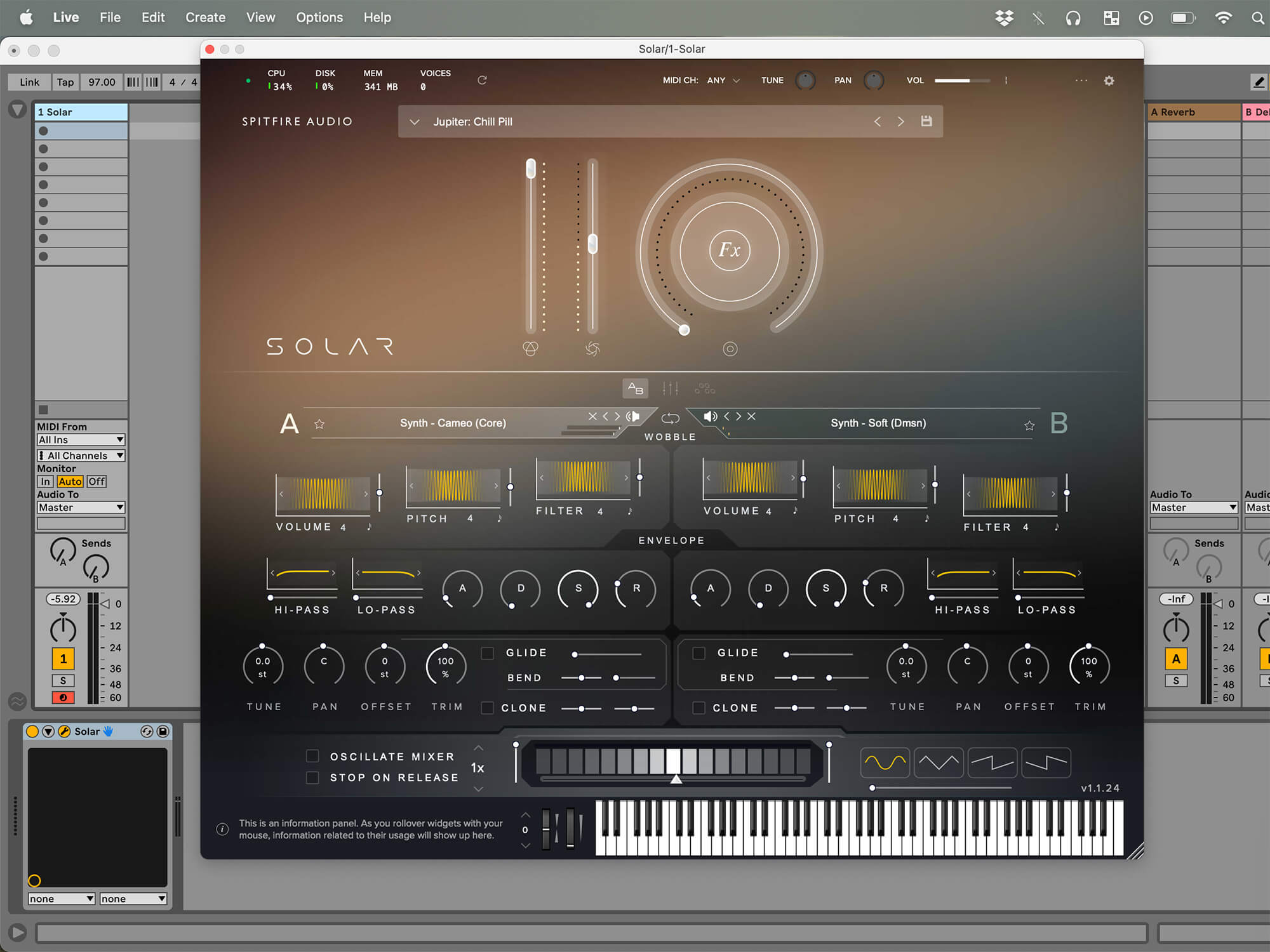
Review Overview
Our rating
7
Our verdict
⊕ Surprisingly versatile sound palette
⊕ The eDNA interface’s synthesis and sound design capabilities remain excellent
⊖ Cramped and buggy search features make navigation a painful process
⊖ Preset quality varies
Not many people can be credited with helping define the sound of a decade. Trevor Horn can. Working with 80s icons like Grace Jones, Yes, and Frankie Goes to Hollywood to realise some of their most enduring records, Horn’s energetic brand of synth-pop laid down a blueprint that still influences myriad music makers today.
Now, the man who helped popularise digital sampling has teamed up with Spitfire Audio to create his very own sample library, Jupiter. There are plenty of fantastic retro sounds that will interest producers and composers alike, but software missteps may give buyers pause.
Worldbuilding
Jupiter is built on 208 unique samples split across five categories; bass, synth, drums, piano, and effects. Flicking through the unprocessed sounds is like encountering old friends – the booming drums, the ultra-defined bass guitars, the characterful, slightly zany stingers; it’s pure 80s ear candy.
Of course, these ‘Core’ recordings are just the start. Thankfully, Spitfire has also included a number of variations on the original samples. There’s a ‘Reflect’ version that sports an oh-so-80s gated reverb; a ‘Calibrate’ version that uses uncalibrated saturation tape; an ‘Alias’ version that brings down the bit-depth and clock-rate to intentionally introduce artefacts into the sound. Finally, a ‘Dimension’ version runs everything through vintage modulation devices like the classic Roland Dimension-D chorus module.
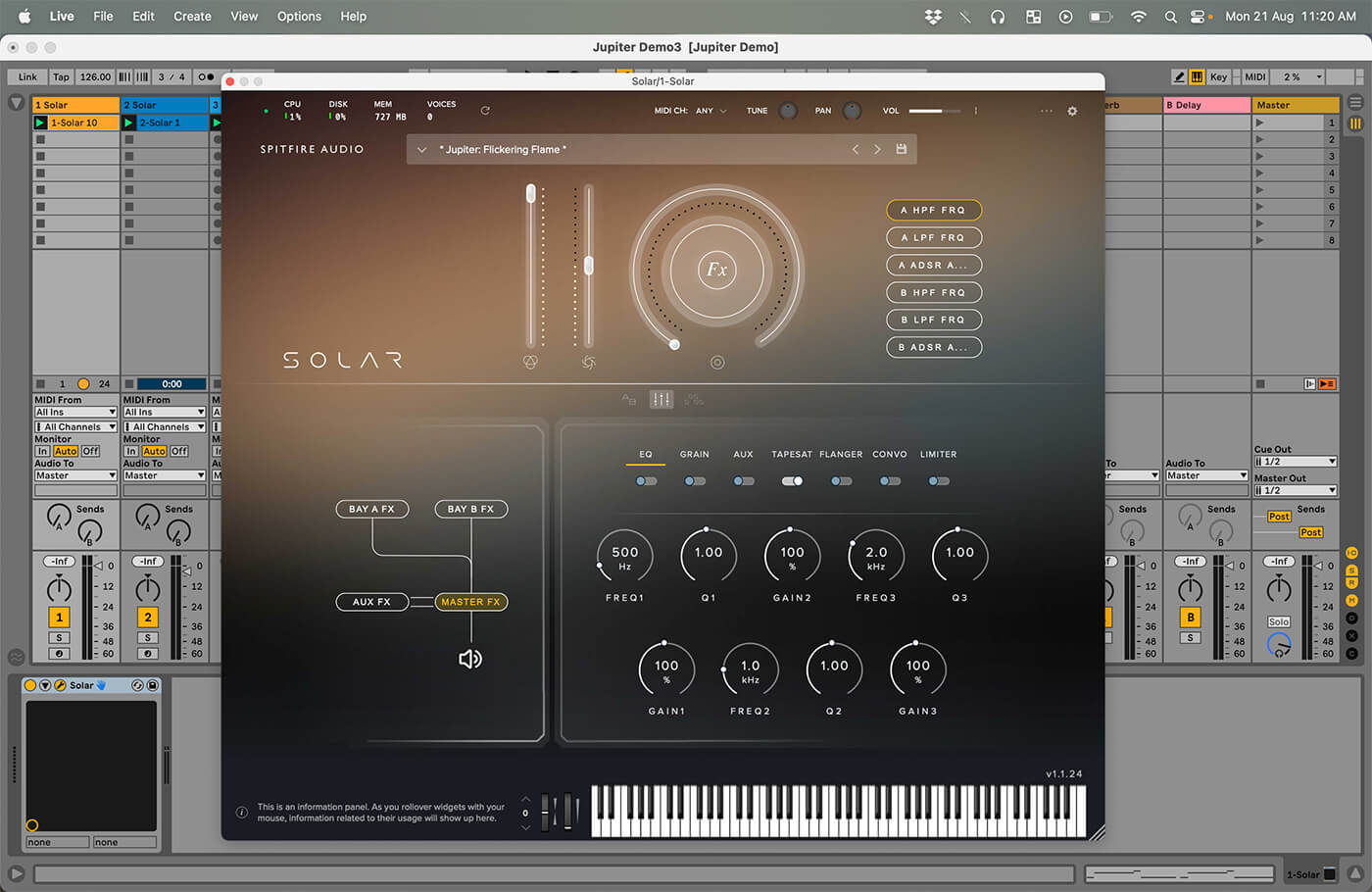
If you’ve previously used Spitfire’s Polaris or Mercury libraries, then the basic premise remains unchanged – take any two samples and dynamically blend them together using oscillation or automation. Plus, a host of time- and frequency-based effects processors can be applied to each sample individually, or on the combined output.
Planetary presets
Jupiter boasts some standout presets, with percussion arguably offering the most authentic taste of Horn’s production style. From the thumping sound of a LinnDrum sampler, to deliciously over-the-top pitched percussion patches, all the way synth stabs that you can feel in your gut, many of these sounds are a pure joy to play with.
Bass is easily the co-star of this show. Trevor Horn is an accomplished bassist, and his personal collection of guitars have been sampled with acute attention to detail. There’s plenty of punchy resonance, should you need to bring a little funk to your mix, but there’s also a number of beautiful, Twin Peaks-esque tones that feel quite unique to this collection.
Then again, they can’t all be hits and the more pedestrian pads and leads are something of a weak point. That isn’t to say there aren’t a number of gems here too, but as you flick through the library’s 300 presets, you’re bound to stumble across a fair number of humdrum options that could be found in just about any generic 80s-themed software synth or sample collection.
However, that mixed bag of presets is ultimately not a deal breaker, as when the sounds are good they are sublime. Hell, the bass and drums almost justify the price of admission alone.
Exploring Jupiter
The real shortcoming here is the plugin user interface; specifically, its search functions. Housed within the Solar instrument, Jupiter is the second in what appears to be a series of upcoming sample collections. Users who own the excellent Mercury library have access to all those samples from within the single instrument and can combine sources from both libraries.
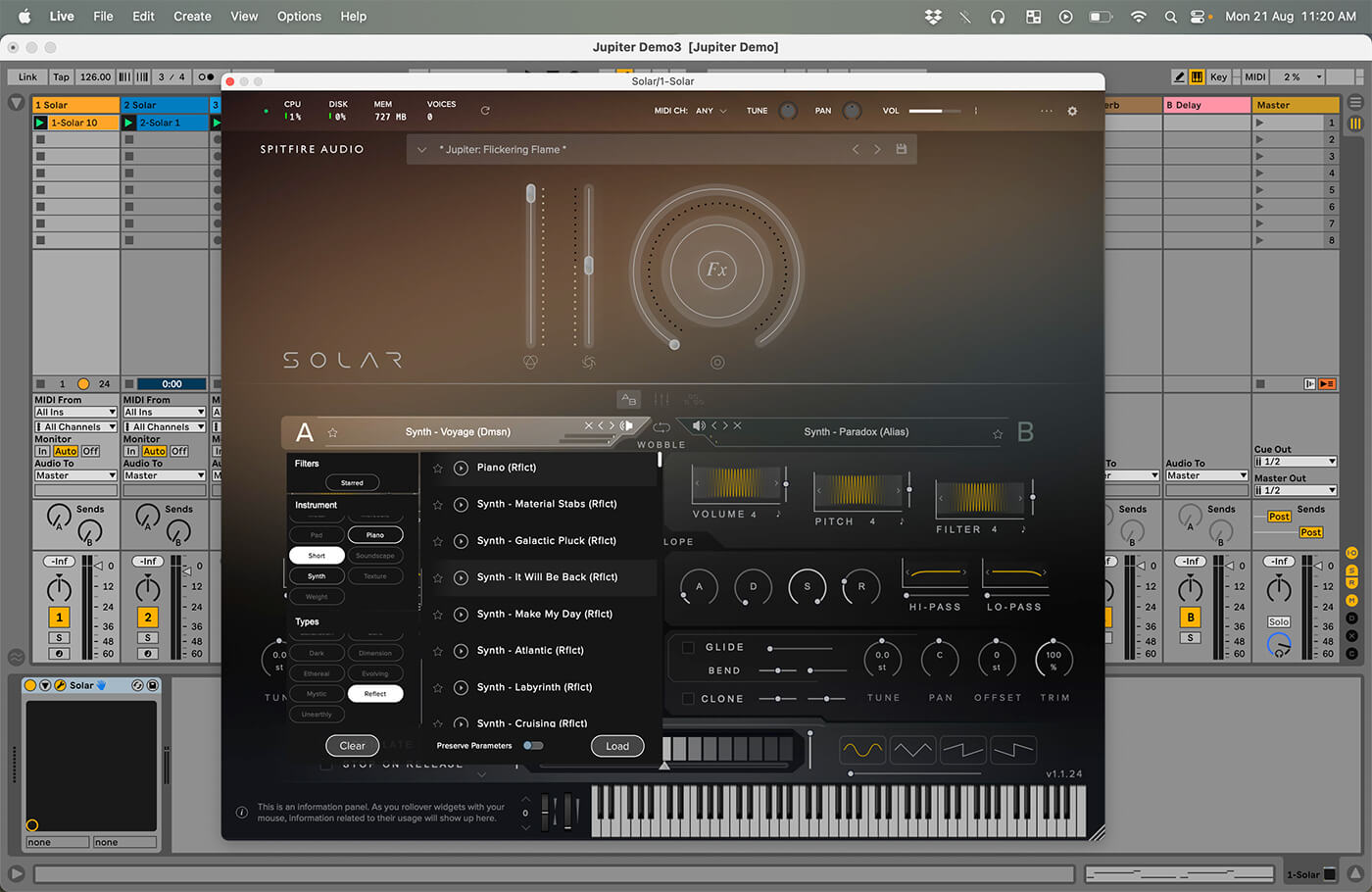
This is awesome, in theory, but Solar’s search menu is simply too cramped and cluttered to effectively accommodate multiple libraries. If the Spitfire Audio team continues adding sample collections to this instrument, sooner or later, they will need to prioritise a complete revamp of its search function.
As it stands, even browsing through the Jupiter library in isolation is a frustrating experience. Your only means of navigation are a set of search tags which are squashed into a little side panel. How many search tags, you might ask? The answer is two. Jupiter’s 300 presets are categorised as either ‘Long’ or ‘Short’. By comparison, the Mercury library is furnished with 11 descriptive search tags, and the neglect given to this new library is both perplexing and disappointing.
Additionally, all of Jupiter’s presets share a single, unhelpful description: ‘a preset utilising complex signal chains across both channels.’ So, if you’d like to find your way to a lead or bass patch, the only option is to doomscroll your way down, auditioning sounds as you go.
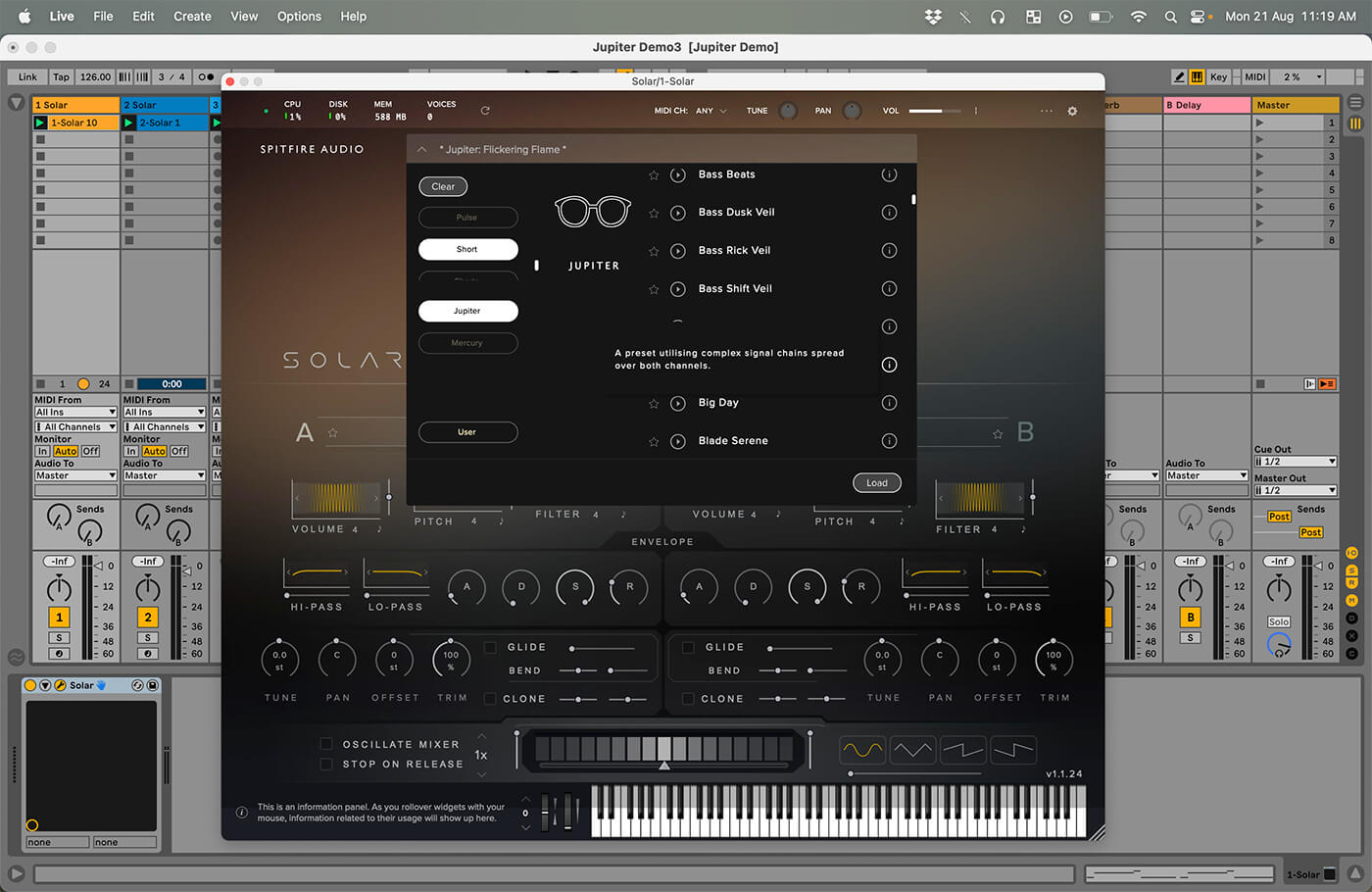
This leads to the second glaring issue – the search function currently has a bug that frequently turns its results into a rectangle of blank space with no sounds or presets whatsoever. Flick from the ‘short’ tag to the ‘long’ tag: blank space. Open up the preset menu after trying out a sound: blank space. Click on the ‘Core’ tag in a sound bay: blank space. Currently, the only way to fix this is to scroll back to the top of the search menu – at which point, you restart the slow, painful search for an appropriate sound.
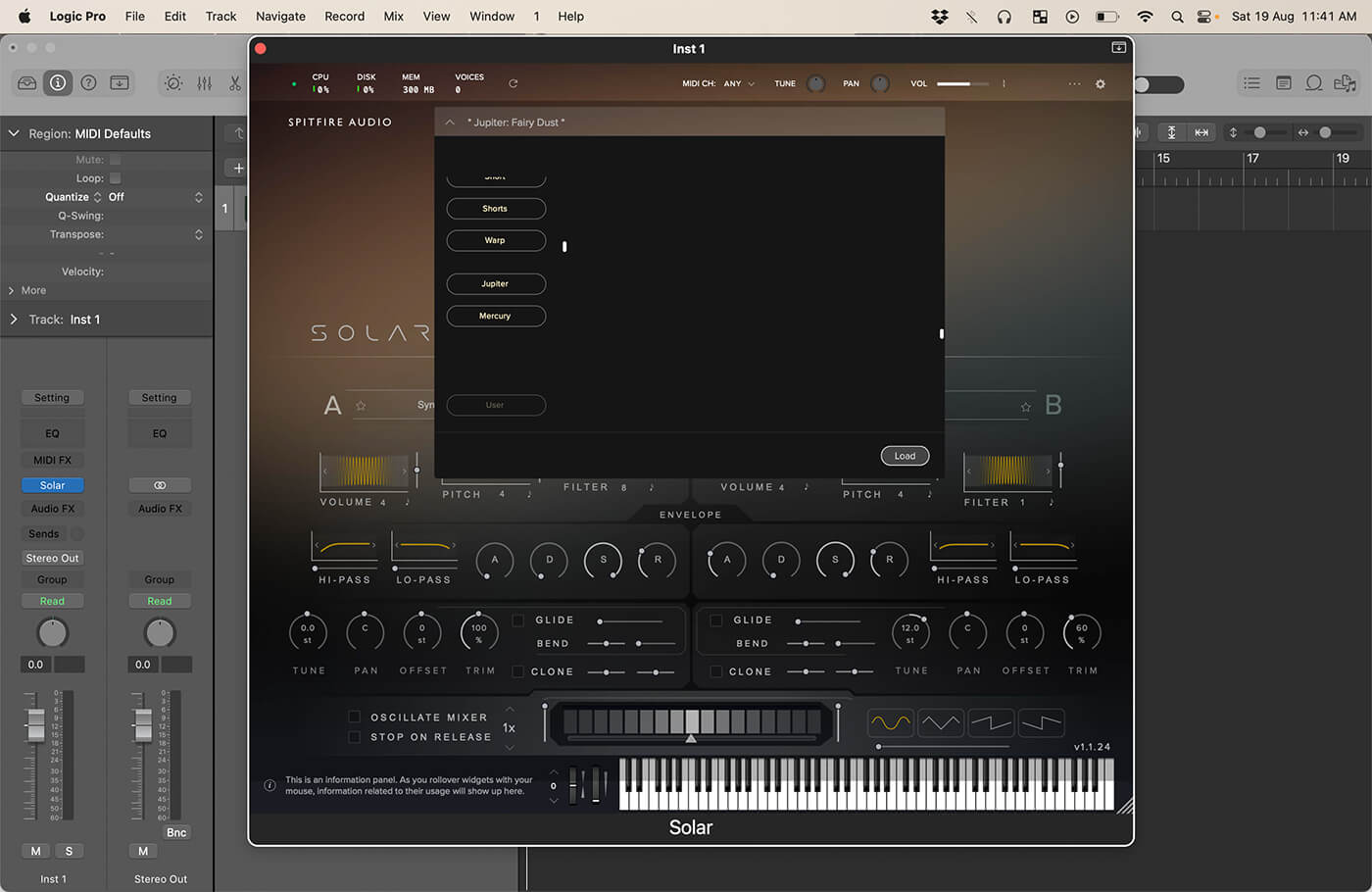
This issue was repeated across a number of DAWs and on both macOS and Windows. Of course, all software suffers from occasional bugs, and this one will undoubtedly be fixed, but it’s hard to escape the feeling that this library has been released unfinished. It’s a surprising misstep given the quality we’ve come to expect from Spitfire Audio.
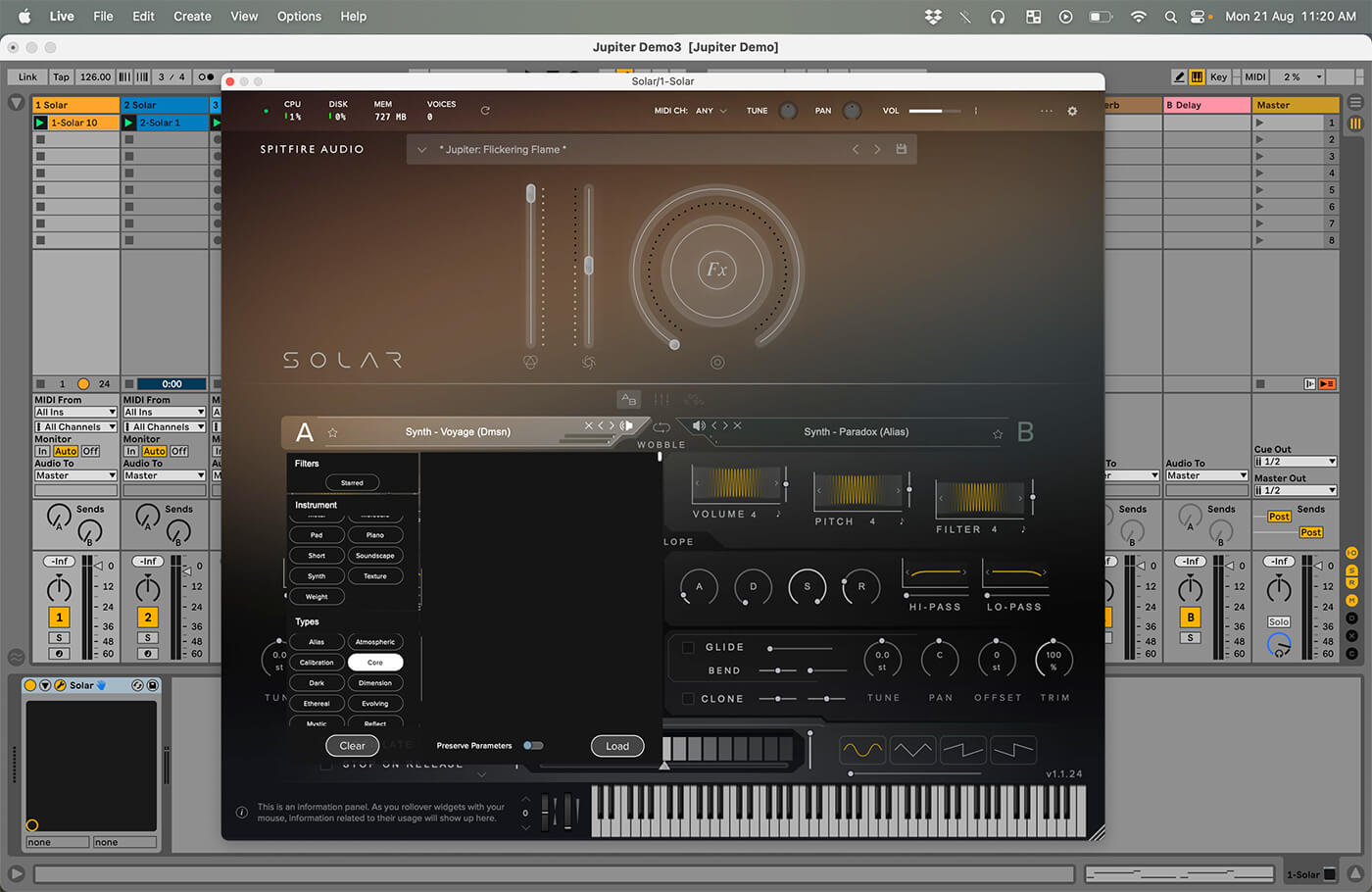
A Horn of Plenty?
Leaving those frustrations aside, there is much to like and even love in the sound of Jupiter. Horn’s flair for synth-pop production comes through and, suitably, this library will have just as much use in the hands of songwriters and producers as it will with composers looking to make those retro, synth-wave scores that are still so en vogue.
Moreover, despite being firmly rooted in nostalgia, the collection is actually surprisingly versatile and has lots of potential for atmospheric scoring and even sound design. This is thanks in part to Horn including a selection of experimental sounding samples, but also to Solar’s eDNA interface which offers deep and very powerful synthesis capabilities.
Ultimately, Horn’s samples win the day here and keep Jupiter afloat. It features some truly special sounds that will add much to a song or score – nevertheless, some uninspiring presets and a laborious search experience diminish what could easily have been a knockout.
Key features
- 300 presets
- 208 samples
- eDNA interface
- Integrates the Mercury sample library
- 45.59 GB download size
- Price: £99.00 / $129.00
- Contact: Spitfireaudio.com